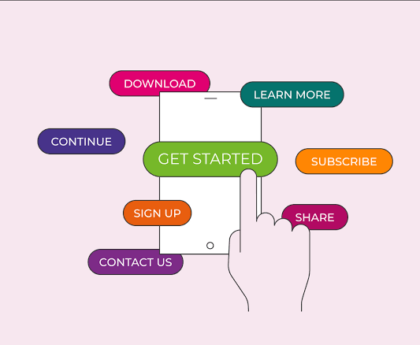
Choosing a Niche for Your Online Business: 3 Creative Models
Choosing a Niche for Your Online Business: 3 Creative Models
If you want your marketing to work, you have to first get specific when choosing a niche for your online business.
If you want your marketing to work, you have to first get specific when choosing a niche for your online business.
You have to understand who your message is for, then speak to that person.
And you have to craft your copywriting offers to serve that person. Present options that appeal to her, that are in line with what she’s willing to spend, and that will benefit her in ways she cares about.
One of the first things people do when thinking about building a business online is rush to identify their “niche.” And that isn’t wrong … but it’s more complicated than it might seem at first.
The word niche doesn’t just mean a focused topic. In biology, niche refers to how each type of organism interacts with all of the other organisms in its ecosystem.
It’s how a plant or animal fits into the larger context.
Your topic is part of your niche, of course. But so is your audience. And your positioning. Not to mention your potential partners. And the folks who share your content. And the content platforms you publish on.
What are some of the different ways that business owners inhabit their niches?
Early niche sites
Back in the day, choosing a niche for your online business meant building a compact site around an under-served keyword phrase. Then you’d learn SEO for content writers to get it to rank and load it up with affiliate offers.
That was tidy, and some did very well with it, but it doesn’t work today.
Rae Hoffman nailed it years ago, in a post that’s still highly relevant on how to survive the affiliate evolution.
Her post talked about moving toward richer and better content, a better user experience, communicating quality (to both visitors and potential partners), and establishing a credible point of difference.
The problem with the old way of thinking about nicheing is that it focuses on the search, not the searcher. The keyword phrase is the focus, rather than the human being at the keyboard who’s using that phrase to solve a problem.
So, I’d like to look at some more effective models.
Choosing a niche for your online business in 2023
Let’s take a topic like learning art.
There’s an astonishing amount of free art education on the web, particularly on YouTube. You can learn to sketch, paint, sculpt — whatever floats your boat.
It’s tough to make a living teaching art online. But there are many businesses that do exactly that.
How? By defining their audiences clearly, focusing their messages and offers, and differentiating themselves. Finding that point of difference.
Keep in mind that art education is a nonzero market.
In other words, people interested in learning more about art don’t just watch one video, read one eBook, or join one membership site. They tend to immerse themselves, especially early on in their journeys.
Now let’s take a look at three examples of sites that do it well.
Niche #1: The mega authority
One way to differentiate is simply to be bigger and more comprehensive than anyone else.
Simply, in this case, doesn’t mean easily.
The site Artists Network brings dozens of well-known artists and art teachers under one virtual roof, partnering with big publishers of art books to give authors a venue to teach.
If you’re the kind of person who has “How to Paint” books on your bookshelf, it’s a good bet that some of those authors have courses on Artists Network.
The model is: find ultra qualified authorities, publish excellent tutorial content that’s interesting and useful, then use the publishing platform to offer more advanced content at an additional fee.
Of course, there are also individual mega authorities. We all know the name Bob Ross, the “happy little trees” painter whose videos were so weirdly soothing to watch.
Ross actually modeled his painting and his patter on the “happy trees” of his mentor, Bill Alexander, who had a PBS show that I fondly remember watching as a child. Alexander’s family still runs art courses that you can pick up online and also offers supplies, books, and a free membership library.
Authorities can compete with the huge volume of “free” in this topic because they’re … authorities.
Art instruction as an online business has the advantage of providing exceptionally appealing content that audiences can see and say, “I want to know how to do that.”
These teachers demonstrate superior mastery of their subjects. They’ve won awards and written books, but most importantly, they know how to teach what we want to do.
Niche #2: The professional authority online business
focuses on professional development for a very well-defined group of artists — art teachers.
It offers courses for graduate or undergraduate credit, as well as satisfying ongoing education requirements for teachers.
The courses are priced to be highly competitive with courses offered at brick-and-mortar institutions. So even though art teachers aren’t known for their deep pockets, the product makes sense financially for its audience.
Like the other models, The Art of Education University offers free authoritative content as well, producing shareable, relevant material that attracts the attention of the customers their business needs.
If you can create content at the right quality, professional development is always a smart play. It’s highly marketable, because it’s something professionals need in order to advance their careers — especially those who need ongoing education to keep their licenses.
If you’re choosing a niche for your online business, you’re likely going to use content to build your audience anyway. This can be a great model if you want to make the commitment to help other professionals grow.
Niche #3: The category of one authority
The two sites I’ve mentioned so far are big. Well-known teachers, lots of content, lots of money and time to set up.
But big isn’t the only way to go.
Artist Eni Oken has niched down her topic in multiple ways.
She’s a certified Zentangle teacher — a form of meditative drawing that is a tribe unto itself. But even within that specific niche, Eni narrows down her focus to specific subtopics, like shading drawings or specific compositional approaches.
Eni’s smart about SEO and ranks for some keyword terms for popular drawing techniques within the Zentangle format.
She funnels her audience attention into a newsletter and keeps her eye on the promotion prize with consistent calls to action.
There’s plenty of beautiful art to look at in her content, but you’re never in doubt that she has a business, either.
When you’re willing to make yourself a “star” of your business, differentiation becomes fairly simple.
Eni Oken differentiates by topic and subtopic (she’s the “shading Zentangle teacher”), but that’s just an introduction to the real differentiation — her distinctive artistic style, her teaching approach, and her personality. Those elements come together into “the brand of Eni.”
You don’t have to build your whole business around your personality — that doesn’t have to be your only differentiator.
But when you’re choosing a niche for your online business, consider adding an element of individual personality. A founder’s newsletter, a blog, a podcast, a vlog — or a combination of those — can make a winning difference.
Resources that help you choose a niche for your online business
If you’re looking to strengthen your writing skills to grow your online business, we’d love to guide you to the best resources each week.
Because when you get the exact right information, you can immediately begin to up your game as a writer. And that’s what’s going to get you the results you want.
The written word drives the web. It always has, and it always will.
Even if you’re working with audio or video, the right words are still what make the difference.
Words drive:
- Engagement
- Customer experience
- Sales, growth, and profit
And if you want to master the art of using words to drive business results, you’ve come to the perfect place.




